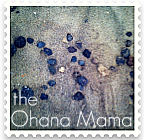Ready to talk “change”? Good. Because I Am Enabled is holding its first-ever “Go Digital Get Digital” Blogging Contest. It’s exciting. It’s easy. And it’s a great way to express your feelings about digital healthcare—and possibly win a Pure Digital Flip Camera for your efforts!
Here’s how the contest works: simply create a unique and engaging blog post that answers the following questions.
* How have digital health records changed—or could change—how you manage your family’s (or even extended family’s) health?
* How would you use a Flip Cam to tell your story?
Then, post it to your blog or website and get your friends and family to comment on your story. Once you’ve received 3 comments (they must be from 3 different people), you’re ready to come back to the iamenabled.com site and submit your URL in the comments section of this blog post. Five blog posts will be selected to win a Pure Digital 120-Minute Flip Video Ultra Camcorder.
So what will make your blog a winner? First, originality. Second, its ability to appeal to a broad spectrum of I Am Enabled readers. And, finally, how well it would play out on video.
That’s it.
So, warm up those blogging fingers and get ready to “Go Digital Get Digital.” Contest begins August 27 and has been extended through October 21, 2009.
Keep in mind that the “Go Digital Get Digital” Contest is only open to legal residents of the United States and District of Columbia. You must be 18 years of age or older. The “Go Digital Get Digital” Contest has been extended until October 21, 2009. For complete contest rules, click here.
Health Terms: A Closer Look
We've been hearing a lot of talk lately about Healthcare and changes to the current system. I think everyone agrees that we need changes but it seems no one can agree on what the changes are that we need. Lets take a look at a process that I think is a much needed change that will benefit everyone: Digital Health Records (DHR) or EMRs, EHRs and PHRs.
EMRs or Electronic Medical Records are digital health records created by a physician, hospital, or facility. Officially, the National Alliance for Health Information Technology (NAHIT) defines an EMR as: An electronic record of health-related information of an individual that is created, gathered, managed, and consulted by licensed clinicians and staff from a single organization who are involved in an individual’s health and care. What that means is that an EMR is an electronic medical record generated at a facility or doctor’s office.
With the EMRs, you have a digital health record with each medical facility you visit that has implemented the program: family doctor, gynecologist, urgent care... However, the record is only available and accessible at that facility. It is not "shared" with your other places of treatment.
EHRs or Electronic Health Records Officially, the NAHIT defines an EHR as: An aggregate electronic record of health-related information of an individual that is created and gathered cumulatively across more than one healthcare organization and is managed and consulted by licensed clinicians and staff involved in the individual’s health and care.
EHRS are a more comprehensive health record because it is a compilation of several EMRs. Because it can be shared (the industry term is “interoperable”) across many networks and with different facilities and practitioners, instead of having a variety of siloed individual electronic medical records, your electronic health record is a compilation of numerous visits/diagnoses/treatments from multiple providers.
This record is very important for people who have chronic conditions and those who see multiple physicians.
Take, for instance, my situation. I have a work injury from February of 2008 and, since then I have seen:
Family Physician
Physical Therapists
Orthopaedic Specialist
Orthopaedic Specialist - second opinion
Orthopaedic Specialist - 1 out of about 20 in US who specialize is my injury and the surgery I needed
Orthopaedic Specialist - second opinion after surgery
Neurologist
Pain Management
Then, you add in all the tests, prescriptions, etc..., as well as all the other records from 39 years of my life. You can begin to see how important and essential this could be.
PHRs or Personal Health Records According to NAHIT, a PHR is an electronic, cumulative record of health-related information on an individual, drawn from multiple sources that is created, gathered, and managed by an individual. The integrity of the data in the PHR and who you let see that information is up to the individual.
In other words, a PHR is a living document that you create and “populate” with your important personal health information, such as immunization records, dates of surgeries, dates of doctor visits, lists of allergies and allergic reactions, and lab test results. Some PHRs, like Microsoft® HealthVault™, also accept information from applications and devices that you can use to measure important information at home such as lung capacity (through a peak/flow meter), blood pressure readings, and blood sugar levels. This information can then be shared with your health practitioners if desired.
One thing to keep in mind: Patients (i.e., you) can take information from an EMR (if you are granted access) or an EHR and add it to your PHR. However, most EHRs as well as PHRs do not accept patient-generated changes. Meaning, if you want to add information, or correct information, you must go through your practitioner’s office to do so. (Which, by the way, is not a bad idea. You can read up on ePatientDave, who discovered a plethora of mistakes in his electronic medical record.)
So what’s in the future? Ideally, the use of a truly interoperable file that contains physician data as well as patient-supplied data. When patients can provide information to physicians and document it in one locale, physicians will be armed with more real-time data than ever before and be able to evaluate conditions in ways that can make a profound difference in patient outcomes.
Initialisms aside, EHRs, EMRs, and PHRs spell serious change in how you perceive and approach your family’s health.
My Perspective
Personally, I think the compilation of records is an absolute necessity and should have been implemented years ago. It's a win-win situation and very vital to healthcare. How many times have you seen people have drug interactions because Doctor 1 gives you "this" and Doctor 2 gives you "this" and the two just don't agree? Or, Doctor 1 runs a test and Doctor 2 runs the same test because he doesn't have the test results or doesn't know if the test included all aspects that he needed to see?
There are so many scenarios that we could discuss. Bottom line, with the EHRs so much time, money and lives could be saved, in my opinion.
Now, to answer the contest questions:
* How have digital health records changed—or could change—how you manage your family’s (or even extended family’s) health?
Not only is it time saving, but it can be life saving. When my father had his stroke, there were so many questions about what medications he was on, what health issues he had, drug allergies......... We are a close family, but some of that stuff, I didn't know. I guess we should have, but "Hey, Dad, are you allergic to anything?", just never came up in conversation. He was 55 years old and, although that is a prime age group for health issues to begin, it was still totally unexpected.
Think about this, you are in a major car accident, far from home and the only information with you is a driver's license and the contents of your purse or wallet. As a former police officer and Emergency Medical Technician, I can tell you, we aren't searching everything in your vehicle to find medications or phone numbers. Eventually, they will call the police department from your home town or maybe check your cell phone and purse/wallet, but you need medical attention Right Now! They are going to start treatment immediately. Are you a bleeder? Are you allergic to medications? Maybe you are one of those people who can't be anesthesized. Any number of things could happen and there's just no way of knowing your history.
Wouldn't the DHR come in handy?
* How would you use a Flip Cam to tell your story?
I think it is key to get information out to people and educate them about what is available, what changes have come and are coming, give them facts from every side of the spectrum: AWARENESS.
With a Flip Cam, I would have the opportunity to put together information for family, friends and anyone who wants to listen. I would then be able to add it to my blogs, YouTube and send it out in e-mails. The old saying: "Knowledge is Power", says it all.
For YOU
Take an interest in Healthcare and make yourself aware of the changes that are here, that are being discussed and that are being implemented. Familiarize yourself with them and have a say, when you can. Do your own research, maybe even enter this contest for yourself.
**************************************************
This contest was offered to me as part of my membership to TwitterMoms. I did not receive products, money or promises of any kind. I was given the opportunity in exchange for my honest review of this program, therefore, the ideas and opinions stated are my own and are the product of my own thoughts and feelings on the subject. For a full disclaimer, please scroll to the bottom of this page.



















